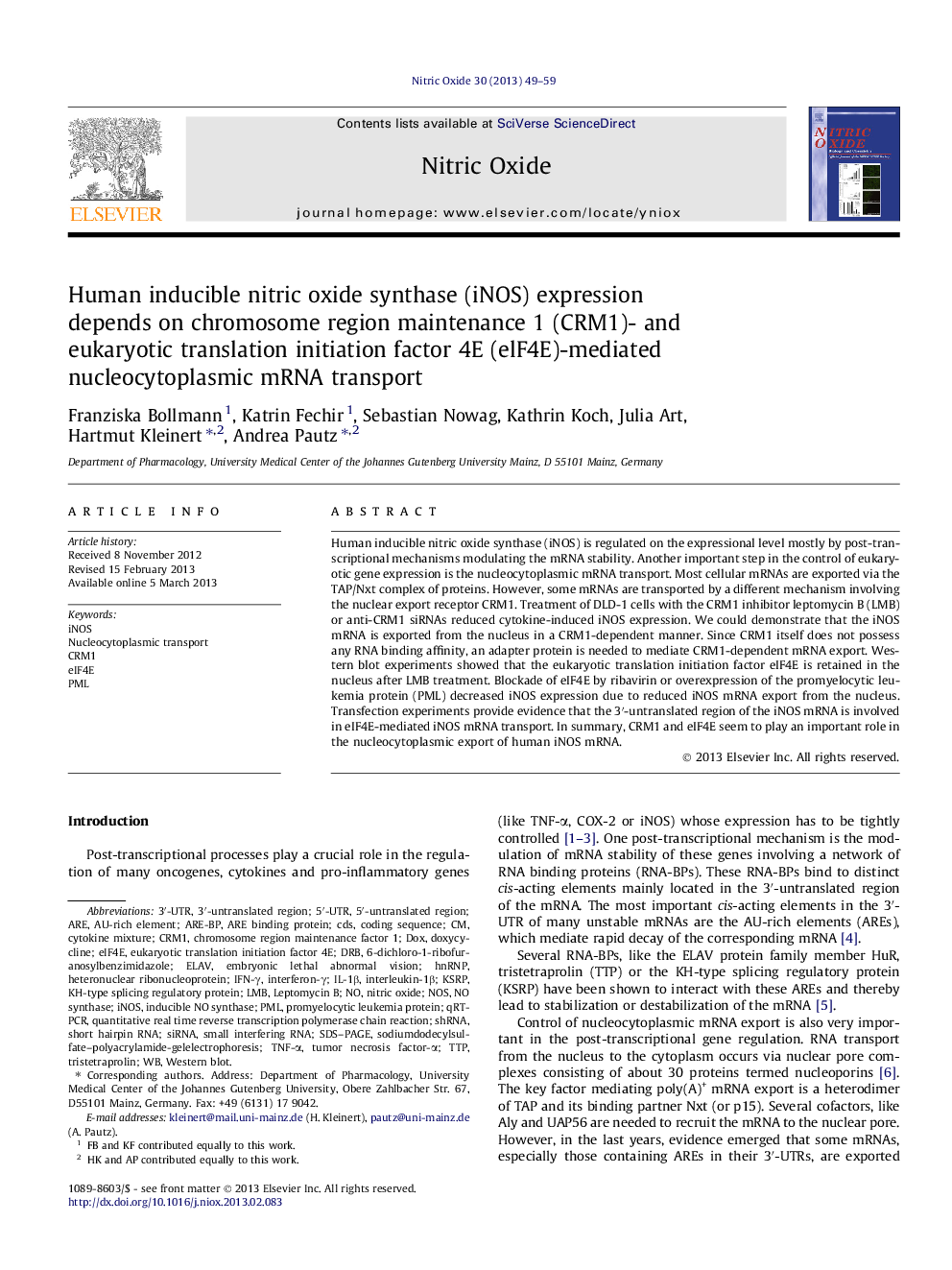| Article ID | Journal | Published Year | Pages | File Type |
|---|---|---|---|---|
| 2001254 | Nitric Oxide | 2013 | 11 Pages |
Human inducible nitric oxide synthase (iNOS) is regulated on the expressional level mostly by post-transcriptional mechanisms modulating the mRNA stability. Another important step in the control of eukaryotic gene expression is the nucleocytoplasmic mRNA transport. Most cellular mRNAs are exported via the TAP/Nxt complex of proteins. However, some mRNAs are transported by a different mechanism involving the nuclear export receptor CRM1. Treatment of DLD-1 cells with the CRM1 inhibitor leptomycin B (LMB) or anti-CRM1 siRNAs reduced cytokine-induced iNOS expression. We could demonstrate that the iNOS mRNA is exported from the nucleus in a CRM1-dependent manner. Since CRM1 itself does not possess any RNA binding affinity, an adapter protein is needed to mediate CRM1-dependent mRNA export. Western blot experiments showed that the eukaryotic translation initiation factor eIF4E is retained in the nucleus after LMB treatment. Blockade of eIF4E by ribavirin or overexpression of the promyelocytic leukemia protein (PML) decreased iNOS expression due to reduced iNOS mRNA export from the nucleus. Transfection experiments provide evidence that the 3′-untranslated region of the iNOS mRNA is involved in eIF4E-mediated iNOS mRNA transport. In summary, CRM1 and eIF4E seem to play an important role in the nucleocytoplasmic export of human iNOS mRNA.
► Inhibition of CRM1 by leptomycin (LMB) or siRNA inhibits human iNOS expression. ► LMB inhibits the nucleocytoplasmic export of the iNOS mRNA. ► LMB changes the nucleocytoplasmic shuttling of eIF4E. ► Inhibition of eIF4E by ribavirin or PML inhibits human iNOS expression. ► The nucleocytoplasmic export of the human iNOS mRNA depends on 3′-UTR sequences.
